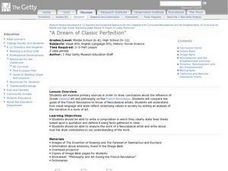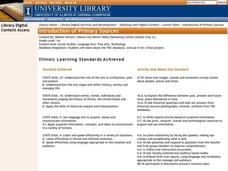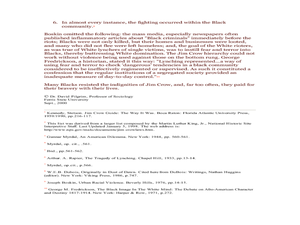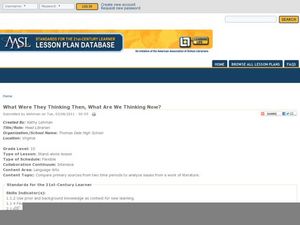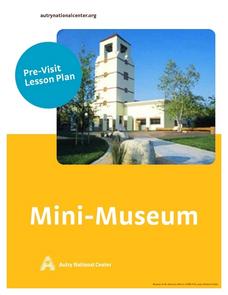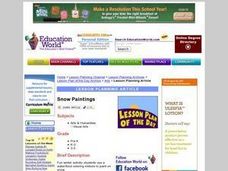Curated OER
A Dream of Class Perfection
Students discover the influence of Greek classical art and philosophy on the French Revolution. In this art lesson, students analyze a Neoclassical artist and write an essay in which they discuss how the style contributes to the...
Curated OER
Pennsylvania Dutch Hex Signs
Sixth graders recreate Pennsylvania Dutch hex signs using pre-cut wood or cardboard, compass, acrylic or tempera paints, and paintbrushes in this 6th grade Art lesson. The lesson is an excellent idea for use in the Social Studies...
Curated OER
Warm/Cool Leaves
Students examine the difference between warm and cool colors. They discuss the basic color wheel, reviewing primary, secondary and complimentary colors. An activity allows students to discover how to mix the warm and cool colors.
Curated OER
Paint a Wet-Into-Wet Watercolor
Students demonstrate the technique of painting wet-into-wet. In this painting instructional activity, students create colors to paint with by mixing two or more colors together. Students use water color to create various images.
Curated OER
Introduction of Primary Sources
First graders examine a database to explain the use of primary source documents.
Curated OER
Nature of Chagall - Oil Pastel Drawing - "I and the Village"
By studying the art and style of Marc Chagall, students create a surreal piece of art
representing themselves and their surroundings and illustrating Chagall's quote, "Great art picks up where nature ends".
Curated OER
The Rise and Fall of the Jim Crow Era
Learners explore African American history by researching the Jim Crow laws. In this Civil Rights lesson, students define the Jim Crow laws, the reasons they were put into place, and how they were ultimately defeated. Learners write a...
Concordia College Archives
History and Musical Aesthetics
What are the musical elements that characterize a school's fight song or its alma mater? Class members listen to examples of fight songs and alma maters from various schools, play a listening game, and then create a list of the...
Curated OER
Kites!
Let's go fly a kite! Little learners cut, glue, color, and design kites from a variety of materials. The step-by-step instructions are included along with three wonderful book recommendations. Tip: This project could easily be...
Curated OER
Emotion Painting
Budding artists explore the nature of emotion through artistic expression. They discuss feelings, colors, line, and design, mix colors and then create an emotive piece that expresses a singular emotion. There are three cross-curricular...
Oglebay Institute
Post-Impressionism: Pointillism
How can little dots in two colors make a third color? Experiment with pointillism and color mixing with a series of activities. After viewing paintings by Seurat and watching a teacher demonstration, pupils create samples of three...
Curated OER
Mixing Complimentary Colors, Tints, and Shades
Students explore primary, secondary, and complimentary colors. They mix tempera paints to create secondary colors, tints, and shades, and design and paint a color grid demonstrating color theory.
Curated OER
What Were They Thinking Then, What Are We Thinking Now?
Choosing an issue from a play or novel, researchers find two primary sources from different time periods to compare how people's views have changed. Many questions are listed to guide young writers. In the end, learners produce a...
Nazareth College
Chronological Order
First, next, and last, the elements of chronological order. In every story or text one can find a series of events that occur one after the other. To help learners with visual impairments conceptualize chronological order, this...
Curated OER
Mini Museum
Students brainstorm about the different types of museums and complete a worksheet by looking at artifacts and what they think that object did. They work together in groups to complete a KWL chart throughout the lesson.
Curated OER
Connotation in Propaganda
High schoolers assess persuasive techniques in propaganda. They identify and critique rhetorical devices in primary source documents (sources are not specified, but links to sites that contain various documents are included). Groups make...
Curated OER
Unit of Study Mural
Students make a mural after reading about the art of Diego Rivera. In this mural lesson plan, students read a book about Diego Rivera, discuss him and his artwork, and make their own class mural.
Curated OER
"Intelligent Design" and Ohio's Science Curriculum
Students explore the debate between intelligent design and Darwinism. They research both topics by accessing primary sources. Students interview school administrators to determine what its science curriculum is and the timeline for any...
Curated OER
Portraits as Keys to History: Nathaniel Hurd, portraiture, identity
Students view portraits of Nathanial Hurd. They complete a worksheet and identify differences between the portraits. This lesson plan finishes with a visit to the "About Face" exhibit in the Memorial Art Gallery.
Curated OER
Color Twist Game
Create your own version of Twister with this step-by-step lesson plan. Materials include canvas, acrylics, poster board, compass, and foam paint brushes. This is a fun art project that will also provide lots of activity and laughs!
Curated OER
Snow Paintings
Students work with water and food coloring as their medium to paint snow. They mix primary colors to make new colors while they decide on appropriate for their snow paintings as they relate to the curriculum.
Curated OER
Latin American Film
Students identify characteristics in a Latin American film. In this filmography lesson plan, students describe their favorite movies and the reasons why they like them. Students are shown a short clip of a Latin American movie and...
Curated OER
Crayon Resist
Kids usually love crayon resist projects. It is so fascinating for them to see how the dark paint accentuates and resists the waxy crayon. Here are instructions for executing a crayon resist project of your own. Tip: Make the project fit...
Curated OER
Literary Skills
Develop their literary skills. In this literature lesson, students collaborate to read portions of books and examine settings, plots, main ideas, and conclusions.
